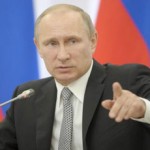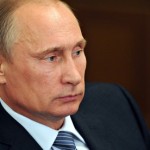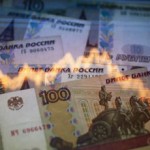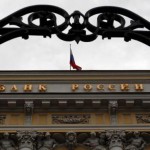Russian Asset Sales Muddy Sanction Compliance
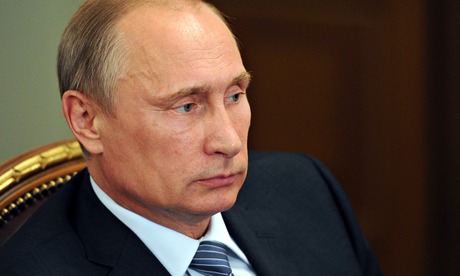
U.S. Companies Already Have to Contend With Complex Rules
In recent months, Boris and Arkady Rotenberg—Russian businessmen and friends of Vladimir Putin —have sold off assets to their sons that include holdings in a Gazprom drilling contractor and the sleek Finnish Langvik Congress Wellness Hotel.
The Rotenbergs’ sales, which came after both men were placed on the U.S. sanctions list in March, are among several asset sales by the targets of sanctions. Such sales further complicate sanctions compliance for U.S. companies, which already have to contend with a complex set of rules on often-opaque companies tied to Russia and Crimea. While U.S. companies may now be free to do business with the sold-off firms, some experts say that many U.S. companies are wary—and rightfully so.
The U.S. has put 57 entities and 74 individuals on the new Russia and Ukraine sanctions lists since March, according to the U.S. Treasury Department. A handful of these have sold off holdings, according to a Wall Street Journal analysis based on data compiled by Dow Jones Risk & Compliance. (News Corp’s Dow Jones & Co., which owns the Risk & Compliance database, publishes The Wall Street Journal.)
The U.S. government doesn’t give companies much guidance about whether they can do business with a firm in which sanctioned parties recently held ownership stakes, said Judith Lee, a partner at law-firm Gibson Dunn & Crutcher LLP.
This lack of guidance is leading many American companies to use caution when dealing with these firms, which are seen as at risk of themselves being placed on the sanctions list, Ms. Lee said. Some U.S. firms have opted to do business with them after doing due diligence, she added.
A spokeswoman for the Treasury Department’s Office of Foreign Assets Control, which implements the sanctions, said it has conducted “extensive outreach” to the private sector to clarify the Russia sanctions. The office’s compliance division, for instance, fields 50 to 100 inquiries about the sanctions every day, she said.
OFAC’s advice includes guidance that companies should probe a sale to be sure it’s legitimate, the spokeswoman said. Firms should examine whether a sale was done at a fair market price and whether it appears to be temporary, she added.
The companies that are being sold off are among thousands owned or potentially controlled by people or companies on the U.S.’s Russia blacklist. Russia’s economy is larger and more connected with global trade than other countries under sanctions, such as Syria and Iran, so the blacklisted parties have more links with companies around the world. These broad business dealings pose big hurdles for American companies, which are restricted from doing business with the subsidiaries if a blacklisted party owns 50% or more of them.
Last August, the Treasury Department advised Americans and U.S. companies to “act with caution” when considering doing business with a company in which a sanctioned party owns less than 50%.
In the case of the Rotenbergs, the summer 2014 sale of the hotel and the related sale of part of an arena to Boris Rotenberg’s son Roman were part of a “generational change” that started in early 2013, a spokesman for the company that owns the hotel said.
Arkady Rotenberg said the sale of his stake in Gazprom Drilling LLC (also known as Gazprom Bureniye) and other firms to his son Igor was part of a “longtime program” and “absolutely” genuine, according to an interview with the Interfax news agency. A spokeswoman for Gazprom Drilling confirmed the remarks and said that Igor now owns 79% of the company.
Compliance experts say companies should investigate ownership structures thoroughly. “In the face of a sale, a company needs to do an even higher level of due diligence to assure that an entity is truly separated from its former owners,” said Daniel Karson, chairman of the investigations firm Kroll.
Blacklisted Bank Rossiya has pared back its stake in insurer Sogaz in the past year. The Russian bank reduced the stake, which it held through its then-subsidiary Abros, from 51% to 48.5% in March, the same month the bank was put on the sanctions list, according to the Dow Jones database. The Treasury Department has called Bank Rossiya “the personal bank” for senior Russian officials.
Gennady Timchenko, who is also on the sanctions list, owns a 12.5% stake in Sogaz through a company called Kordeks, according to the database. Together, Bank Rossiya and Mr. Timchenko owned a stake of more than 50% of the company between March and August. A spokesman for Mr. Timchenko said he owns a minority stake in Sogaz but didn’t specify how the stake was held.
In August, the Treasury Department said that Americans and U.S. companies are restricted from doing business with companies where multiple parties on the sanctions list own stakes that total 50% or more.
That same month, Sogaz said Bank Rossiya had further decreased its Sogaz stake to 32.3%, according to the database and a corporate document, bringing the combined amount owned by those on the U.S. sanctions list to about 45%. In September, Bank Rossiya said it gave up ownership of Abros, which was itself blacklisted in April, according to a divestment statement on the bank’s website. Bank Rossiya didn’t respond to a request for comment.
A Sogaz spokesman confirmed the current ownership stakes of Kordeks and Abros but declined to comment on the firms’ ultimate owners or the recent sales.
Source: WSJ – Russian Asset Sales Muddy Sanction Compliance









